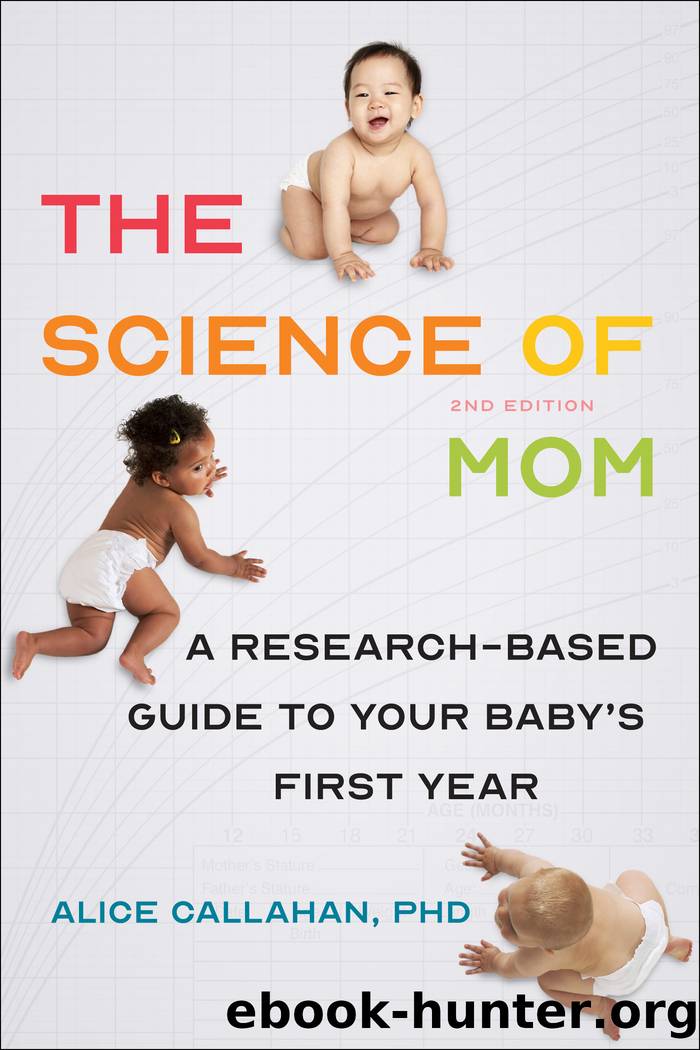The Science of Mom by Alice Callahan

Author:Alice Callahan
Language: eng
Format: epub
Publisher: Johns Hopkins University Press
Published: 2021-11-15T00:00:00+00:00
ON EVIDENCE, UNCERTAINTY, AND TRUTH ABOUT SCIENCE
After sorting through all this science on the benefits of breastfeeding, I was struck by how messy and full of conflicting results it is. The scientists publishing this research are usually honest about the limitations of their work and careful in their interpretation, but somewhere between these studies and their translations into public health campaigns, this nuance can get lost in simplified âbreast is bestâ messages that smooth over all the wrinkles and rough spots in the data.
The simplification of public health messages is understandable. After all, most of us prefer clear answers over uncertainty, hedging, and lengthy discussions of correlation versus causation. Yet this is real life, and itâs undeniably complicated. I believe we can highlight the value of science while also acknowledging its limitations. Science is our ongoing pursuit to understand the truth of our own biology so that we can make smart choices at an individual and policy level. But part of the scientific process is questioning our assumptions and probing the evidence for weaknesses, and oversimplifying the evidence or exaggerating the benefits of breastfeeding can compromise public trust in science. If weâre told that breastfeeding will solve all the woes of a chronically ill society (along with the message that every mother can breastfeed), then of course those who breastfeed can become judgmental of those who donât, and of course formula-feeding parents can end up feeling ashamed and defensive. Thereâs plenty of solid data to support breastfeeding as beneficial. Thereâs no need to exaggerate this. For many families, breastfeeding is a wonderful choice. For others, it isnât, and we can move on to talk about how to support all new parents and their babies. Honesty is essential in how we talk about the science and the barriers to breastfeeding; otherwise we unnecessarily increase the heavy burden of meeting the ideals of parenthood.
Itâs also worth pointing out that the hypothesized benefits of breastfeeding for long-term health are small in the scheme of things. Breastfeeding is one factor among many that will shape a child, which is why thereâs no apparent difference between cousins Cee and Amy Bell in their health or intelligence. If you canât or donât want to breastfeed, there are lots of other ways you can support your babyâs brain development and healthy growth. However, such long-term benefits of breastfeeding could be more meaningful at a population level. This is especially true for more disadvantaged groups, such as those living in poverty or affected by systemic racism, who already face disparities in access to healthy food, safe spaces to exercise, and educational opportunities. As these communities are often the same ones who face more barriers to breastfeeding for reasons like lack of support in their workplaces, families and children would surely benefit from greater societal and political support for breastfeeding.
Download
This site does not store any files on its server. We only index and link to content provided by other sites. Please contact the content providers to delete copyright contents if any and email us, we'll remove relevant links or contents immediately.
Spare by Prince Harry The Duke of Sussex(4195)
Machine Learning at Scale with H2O by Gregory Keys | David Whiting(2283)
Fairy Tale by Stephen King(2062)
Will by Will Smith(2039)
Hooked: A Dark, Contemporary Romance (Never After Series) by Emily McIntire(1950)
Rationality by Steven Pinker(1763)
The Bullet Journal Method by Ryder Carroll(1500)
The Becoming by Nora Roberts(1327)
Friends, Lovers, and the Big Terrible Thing by Matthew Perry(1326)
A Short History of War by Jeremy Black(1298)
HBR's 10 Must Reads 2022 by Harvard Business Review(1253)
The Strength In Our Scars by Bianca Sparacino(1240)
Can't Hurt Me: Master Your Mind and Defy the Odds - Clean Edition by David Goggins(1226)
515945210 by Unknown(1206)
Fear No Evil by James Patterson(1107)
Love on the Brain by Ali Hazelwood(1094)
Bewilderment by Richard Powers(1082)
This Family Does It by Kevin Sellers(1080)
443319537 by Unknown(1071)
